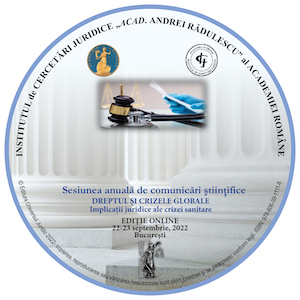Restrângerea exercițiului unor drepturi și libertăți în timpul crizei sanitare. Consecințe actuale
Restriction of the Exercise of Some Rights and Freedoms During the Health Crisis. Current Consequences
Author(s): Marius Andreescu, Andra Nicoleta Puran
Subject(s): Social Sciences, Law, Constitution, Jurisprudence, Constitutional Law, Human Rights and Humanitarian Law, Sociology, Health and medicine and law
Published by: Universul Juridic
Keywords: fundamental rights and freedoms; health crisis; restriction on the exercise of certain rights and freedoms; legitimacy and constitutionality of restrictions;
Summary/Abstract: The provisions of Article 53 of the Constitution allow the restriction of the exercise of fundamental rights and freedoms, but only conditionally. The rules established by these regulations have the value of a constitutional principle, because they are applicable to all the fundamental rights and freedoms of the citizens. The Constitutional Court and the courts are the main state institutions that have the competence to guarantee the observance of the exercise of fundamental rights and freedoms of citizens, to verify the conformity of normative acts with the Fundamental Law and to the constitutionality of limits, conditions and restrictions of exercise of rights. power of the Parliament and the Government when adopting restrictive measures. During the health crisis, the government restricted the exercise of essential fundamental rights, which severely affect people's private and social lives. In this study we analyze, based on the jurisprudence of the Romanian Constitutional Court, some international courts and some courts, the legitimacy and constitutionality of these restrictive measures as well as their current impact.
Book: Dreptul si crizele globale. Implicatii jurdice ale crizei sanitare
- Page Range: 152-160
- Page Count: 9
- Publication Year: 2022
- Language: Romanian
- Content File-PDF

